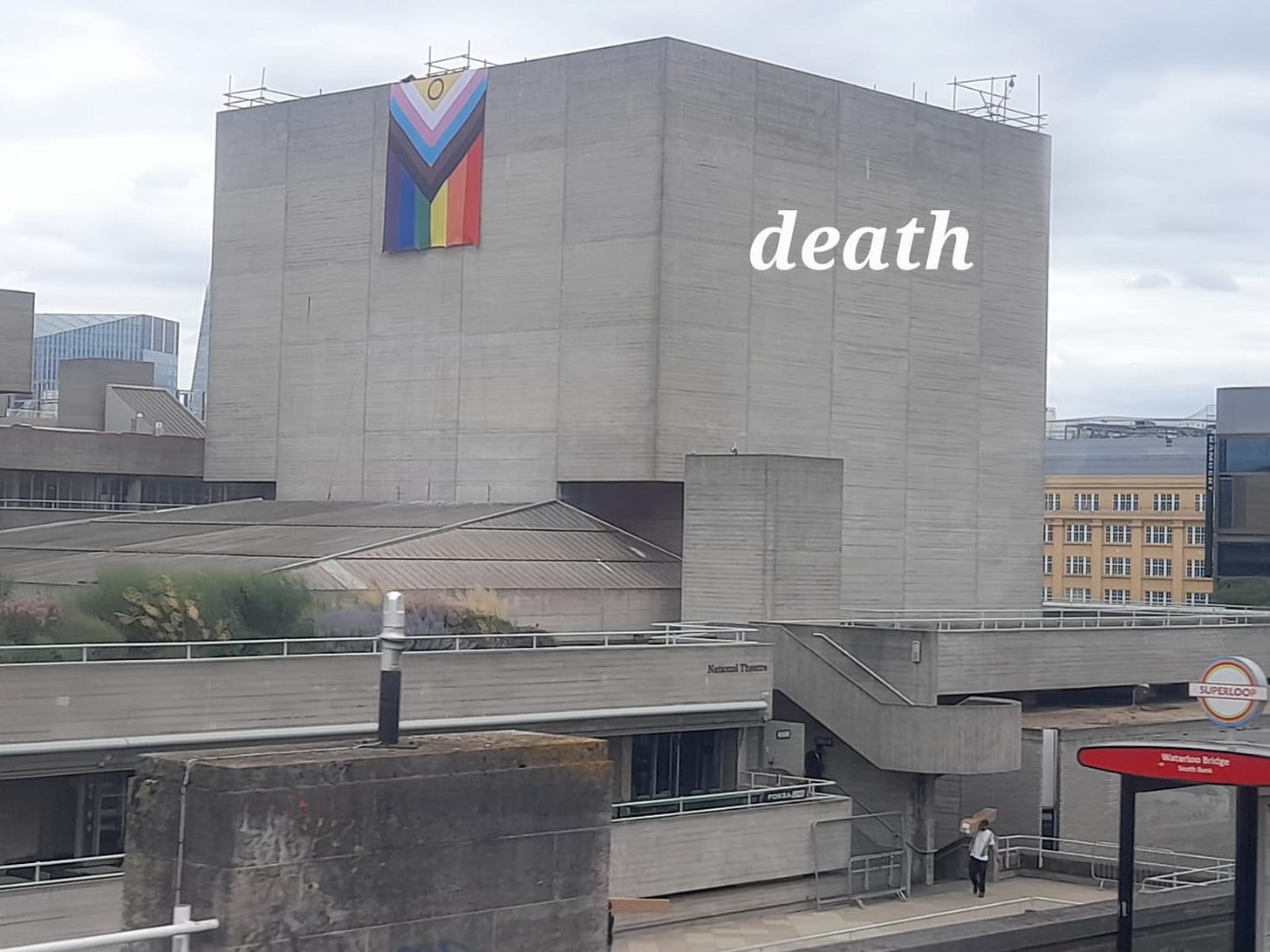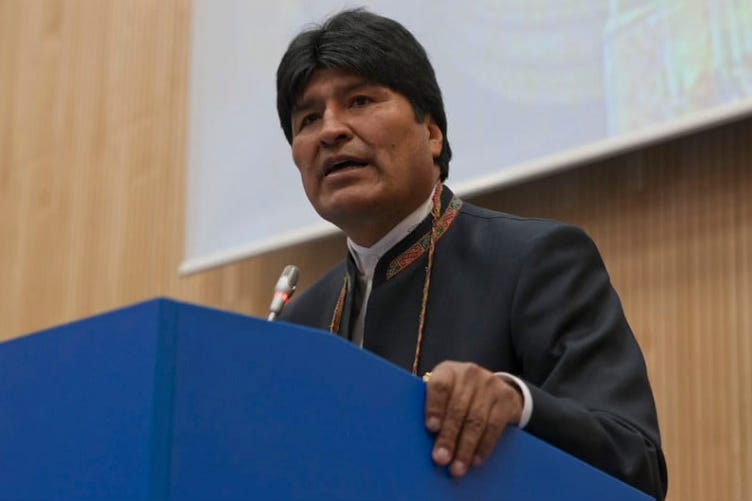This week a dialogue (or really, trialogue) about the art world between three Compact contributors and columnists—Daniel Miller, Pierre d’Alancaisez, and Adam Lehrer— for IM-1776 caused quite a stir. The art world is without doubt the area of contemporary human activity most prey to group-think, censorship, mobbing, hissy fits, and the crappiest and most ideological work this side of Stalinism. Ironic, given that you’d think that a post-religious people would require art and culture to be the place where human horror, ambiguity, and difficulty resided.
Funding bodies generally reward not the art but the tick-box identity of the artist, and artists subsequently feel compelled to make soulless work that reflects this “identity.” “Identity” of course is a stupid basis for doing anything, but as the bureaucratic machine seeks to crush every last vestige of idiosyncrasy, thought and feeling under diversity quotas and the general becoming-idiot of everyone, it is not surprising that people who wish to make art are timidly responding to such imperatives. As Miller puts it
The globalist art world is a parasitic bureaucracy dominated by apparatchiks and bootlickers who have no genuine feeling for art but want to control it. I am thinking of the kinds of people who work for magazines like Texte zur Kunst or Art Monthly. These people would be National Socialists under Hitler and Communists under Stalin. Today, they are global progressives committed to propagating ideological narratives that legitimate bureaucratic expansion.
The progressive ideological sheen masks and provides cover for the economic reality that the art world is a money-laundering game for oligarchs. As Lehrer points out:
[the art world] is a business, a huge business, and right now business is still looking pretty good. Last year, global art sales were down 12%, but the art world still netted $13 billion. That’s hardly a crisis number, and MFA brats will need a much harsher wake-up call before they start to rethink their whole approach. Human beings are stubborn, after all, and curators, dealers, and directors are so set in their ways they might as well be Vietnam Vets drinking at the Legion every night.
In any case, people are increasingly diagnosing the broader cultural situation. As River Page (another Compact contributor) recently wrote:
The arts are in a terrible state because nowadays art is made by people with no stories and no problems. Everybody is depressed. Everybody's anxious. All for reasons they won't reckon with. Everybody is on drugs to make them feel nothing. Nobody feels guilty about anything important. Nobody struggles with themselves. Art is bad now because nobody knows how to suffer … there is something horrifyingly empty about a generation who have never once considered that they might have a soul.
The absence of a tragic culture is perhaps the greatest tragedy of all.
In the dialogue, D’Alancaisez suggests that “the immediate future might see a further proliferation of artistic niches, each with a version of judgment and micropolitics.” My feeling is that we are building these niches outside of existing institutions which are stymied by the imperative to maintain the status quo at all costs. What would an art that understands, from amidst its torpidity and comfort, as Miller puts it, that “human culture, and not only human culture, is essentially a pyramid of slavery, enforced by violence” look like?
Latest pieces in Compact
Chris Wright kicked off the week with a tough but necessary piece on NATO and the threat of nuclear war. Arguing that “the world is at its most dangerous moment since the Cuban Missile Crisis of 1962,” Wright states that the war is really one of resources and that, from NATO’s point of view, the war must “continue indefinitely, and negotiations with Russia mustn’t be pursued.” Wright concludes that Western leaders are acting with “reckless disregard for the future of humanity” and that “It is downright puzzling that millions of people aren’t protesting in the streets every day to demand de-escalation.”
Writing on the 40th anniversary of the death of Michel Foucault’s death, Compact founding editor, Sohrab Ahmari, in a lengthy, reflective, and widely-read piece, analyzed the complex legacy of this “bleak genius.” Arguing that “Foucault’s ingenious methods for analyzing power have now emerged as but one more strategy for the maintenance and expansion of existing institutional power,” Ahmari describes how the lack of a normative core to Foucault’s work has permitted his critical force to be weaponized by today’s institutions:
The normative and metaphysical void at the heart of his science of power created the conditions for the bastardization of his thought. The result is that today, some of the most powerful institutions in our society deploy his concepts and vernacular to perpetuate themselves in a manner that is downright, well, Foucauldian.
Batya Ungar-Sargon wrote about how blue-collar union members are put off by what one union leader Ungar-Sargon interviewed called “the permanent culture of progressive college-educated coastal elites.” Ungar-Sargon concludes that “there are two paths available to American unions—the UAW’s path of inflating its ranks with white-collar progressives and catering to them with non-economic measures, such as ceasefire resolutions; and the Teamsters’ path of dissociating from the Democrats and making politicians fight for their endorsement.”
Alexander Nazaryan analyzed the reasons for Jamaal Bowman’s recent defeat in New York, arguing that it was not his positions on Gaza that sunk him but rather, like many representatives, that Bowman is simply “is terrible at politics … It turns out that politics is an easy job to get but a hard one to master. Bowman’s predicament is far from unique in Washington. To the contrary, it is one of Washington’s prevailing problems that this political town is full of inept politicians.”
Juan David Rojas wrote a rapid-response analysis of the mid-week coup attempt in Bolivia, arguing that “Morales has been the source of every crisis in Bolivia since 2016.”
In the second of our Foucault anniversary pieces, David Dudrick discussed how Foucault’s critique of the “repressive hypothesis” nevertheless created a world in which, in the name of power, Foucault is both remembered and forgotten at the same time:
Some systems of power have a clear end goal, a clear purpose—even though there is no one who can be said to have designed them for that purpose. (If this sounds absurd, consider its similarity to the claim that the purpose of the heart is to pump blood, when such a claim is made by an atheistic Darwinian who disavows final causes.) No one decided that we should be compelled to think of ourselves as having identities defined by a myriad of possible “sexualities”—and yet compelled we are. “The irony,” Foucault wrote, “is in having us believe that our ‘liberation’ is in the balance.”
Finally, we published Patrick Deneen’s brilliant response to Alabama’s proposal to install the Ten Commandments in classrooms with reference to Richard John Neuhaus’s 1984 book The Naked Public Square:
The prospect of an open debate and even political battle over what should constitute our public commitments is both refreshing and perilous. For decades, liberals effectively shrouded their commitments in the garb of neutrality, pretending to be above the fray, while the religious citizen attempted to justify why his beliefs (or those of Western Christendom) should trump “neutrality” and “fairness.” The terms of that debate were always tilted and false. In fact, liberalism is both constituted by and advances through a deeply held set of substantive beliefs. Liberalism is a comprehensive doctrine, not “above” all the others.
Nina Recommends
— London: A new play “What We May Also Do” by Oliver Bennett from The Base Creates on at Verdurin on 2nd & 3rd July
— Staying up all night this coming Thursday, 4th July to wait for the UK General Election results to come in. Labour will win but perhaps but not as much as they might have hoped, the Tories will be over as an electoral force (at least for a while), and Nigel Farage will perhaps win one seat for Reform—but who knows!
— London parks in the sun. We’ve had at least three days of nice weather this summer so far. Here’s hoping for a few more this side of the Solstice.
Until next week — Nina









I need more on the need for a tragic culture. Please tell me this will be expanded.
I guess if I only looked at the narrowest of definitions of "art", I would also be disgusted by what is happening. But do you realize that art exists outside of the “globalist art world”?
Have you thought to look in books or material not sanctioned by your precious elitist academic institutions? Or outside your stuffy parents' idea of art?
As well read as you seem, the idea that art is limited to these institutions set up specifically by the wealthy is just you parroting the propaganda. You aren't doing anything useful by critiquing oligarchs using art as a money laundering scheme. Of course the “globalist art world” rejects works that do not serve them, that doesn't mean that the art doesn't exist, you are just too lazy and elitist to find and help promote art that deserves to be funded. This whining serves as a catharsis to mitigate and redirect any actual changes, thereby reinforcing the “human horror, ambiguity, and difficulty”.
Try harder.